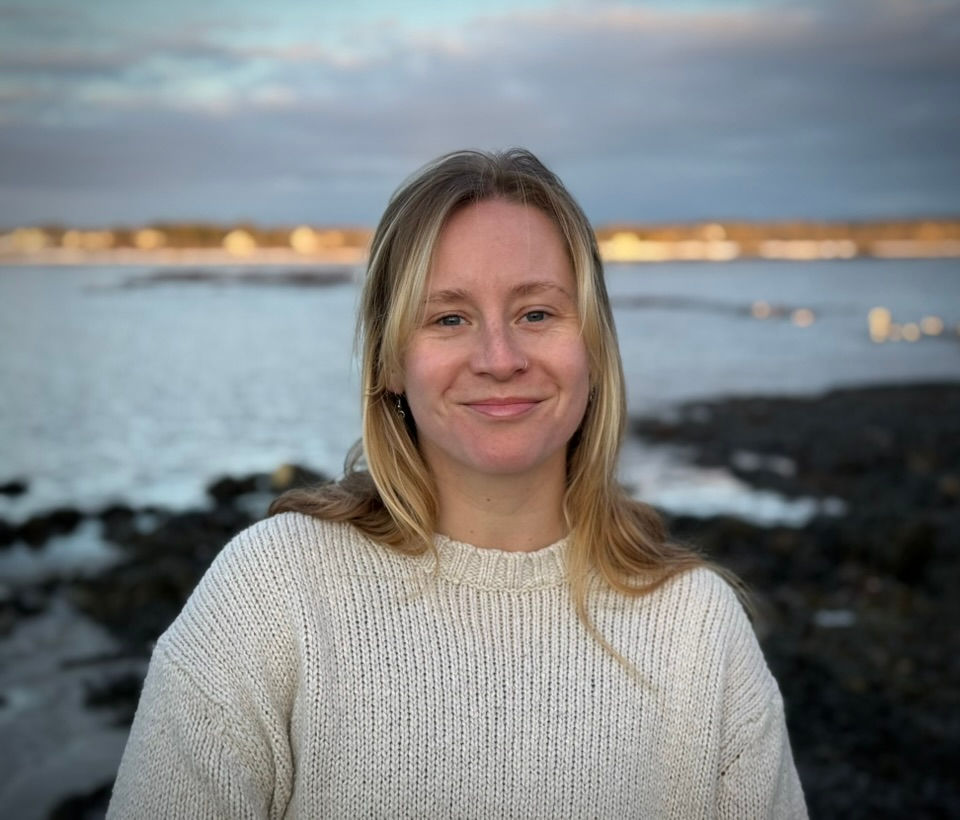What Does the Working Waterfront Look Like After the Storms: MCFA's latest panel
- susan1138
- May 13, 2024
- 3 min read
Updated: Jun 3, 2024
Harpswell, Brunswick, Freeport, Kennebunkport, Belfast, St. George, and now Bath. These are the towns where MCFA has co-hosted panels to discuss the variety of issues facing Maine’s working waterfronts. Working waterfronts are a particularly poignant topic right now given the recent storms that have caused extensive damage along the Maine coast and the need to figure out strategies and solutions for recovering and rebuilding.

The latest panel, co-hosted by MCFA and the Kennebec Estuary Land Trust, “What Does the Working Waterfront Look Like After the Storms?” ironically had to be rescheduled because of a storm. However, the night the panel was rescheduled was a beautiful warm spring day where attendees could enjoy views out over the Kennebec from Maine Maritime Museum’s Long Reach Hall. Panelists included Sadia Crosby, oyster farmer and co-owner of OystHERS Raw Bar & Bubbly, Nate Hassett, Production Manager at Custom Composite Technologies, and Katie Conroy, Education and Community Programs Manager at the Maine Maritime Museum.
The conversation included a discussion about ways that maritime industry can be responsive to coastal storms and climate change as well as what the future of the industry looks like in Maine. MCFA’s Director of Community Programs, Monique Coombs, served as moderator and opened the discussion by asking the question, “How did the January storms impact you and your business?” “There was a moat around us,” said Crosby, describing their waterfront restaurant. Her family also lost their wharf in Georgetown. Hassett added that they lost power in their shop for the first time and will now be buying a generator to prepare for the future. While the impacts were direct for those on the waterfront, Conroy told a story of asking the question, “What’s been happening on the coast of Maine?” to a class of students in Gorham, who replied with silence, having no idea of how much damage the coast sustained from the January storms. Coombs emphasized the importance of storytelling and educational events to share this information with the public.
While the damage along the waterfront was severe, a common theme was how communities came together to help each other out. Hassett lent an employee a generator who didn’t have heat, saying, “We try to take care of our employees. They’re important. If people can’t show up for work, it impacts our business.” Crosby said nearby Brackett’s grocery called to ask, “How can we help?” and offered ice and refrigeration so that the restaurant’s products wouldn’t spoil.
A discussion of the challenges that lay ahead included permitting hurdles, lack of workforce, and the cost of supplies. “Everyone knows when you go to the hardware store, a 2x4 costs more than it did a couple of years ago,” said Crosby. Coombs added that years ago people could cobble together repairs, but 2024 regulations won’t allow for that. Add to that that “Now everyone is trying to get those 2 x4s,” which are in short supply as well as the labor and expertise needed to rebuild. “I think there’s a role for the marine industry,” said Hassett. “I think businesses could work together - we make one part, another business makes another. We have to help out- that’s what Maine is all about”.
As for what people can do to help, Conroy noted that she sees hope in the younger generation. “Conversations start at a young age,” she said, describing the Museum’s Green Teens which engages youth in climate discussions. Audience members echoed the importance of education and continuing the conversation about how communities can help to rebuild. Simple things like staying informed and urging legislators to pass bills like LD 2225, An Act to Provide Funding to Rebuild Infrastructure Affected by Extreme Inland and Coastal Weather Events.
Crosby captured the sentiment of the event by thanking people for showing up for an event like this. She urged them to think of who isn’t in the room and to engage them in the conversation. “Also, eat more Maine seafood. It’s a simple thing that helps,” she added.
On the note of continuing the conversation, MCFA will host a follow-up panel in Phippsburg at the Maine Oyster Company's Base Camp on May 23rd. That event, “Hidden Working Waterfronts,” will be a conversation about the hidden working waterfronts that often go unnoticed along the coast of Maine and their significance to the waterfront economy and heritage of this area. The event is free, but registration is required. Please register here.





Comments